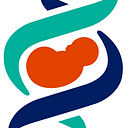I’m Celebrating Mother’s Day Extra Because of You
A Birth Defects Insights Blog
By Vinita Oberoi Leedom, MPH, APM, PMP
Member of the Society for Birth Defects Research and Prevention
Last Mother’s Day, I had the privilege of bringing home a beautiful baby girl I named Anika. She was, and still is, the brightest spot in the pandemic for me. Whenever my baby girl smiles at me, her dark eyes warm and trusting, it feels like the sun is peeking through the clouds.
My pregnancy with Anika was filled with reminders of the importance of what you do every day, wherever you are, in the busy and quiet corners of the world we live in. As toxicologists, researchers, geneticists, public health workers, policy makers and more, the work you do means the difference between illness and health for current and future generations. I am so grateful for your dedication to your field. I am thankful for the medical advances that have come about because of the persistent curiosity of people like you. From my first prenatal visit when my astute physician surveyed me about folic acid intake, alcohol habits and genetic testing, to immunizations in the second trimester and Group B streptococcus testing at 37 weeks, my care teams were thinking about me and my daughter’s health in ways that only came about because of the work of scientists and data translators like you.
In research, we don’t always get to see the fruit of our labor. Once upon a time, people thought Ignaz Semmelweis was crazy, but he is credited for decreasing the incidence of infection among laboring women. I’m sure some of the other monks thought Gregor Mendel was a little strange for staring at pea plants for hours on end, but he laid the foundation for modern genetics. Rous had to wait fifty years for anyone to credit him for his discovery that viruses can play a role in cancer development. However, without these people, we wouldn’t have the advances we have now. We wouldn’t have the opportunity to seek out treatments for things that were considered completely incurable just one hundred years ago. Without people like them and you, my daughter wouldn’t have been screened for life-threatening diseases with a simple heel prick at one day old.
Whether you are drafting a policy statement on vaccination right now or puzzling over the physiology of a zebrafish, please know that you are inspiring, your work matters, and the world needs you. Your work communicates that human beings are valuable, and that we must protect them. This Mother’s Day, I thank you on behalf of new mothers like me for your dedication to cutting edge research that ultimately protects our children and those to come. We have a lot to celebrate and appreciate your continued work in this field.
About the Author
Vinita manages a statewide birth defects surveillance program in SC, USA. She is also a doctoral candidate in public health at USC SC, and is studying receipt of healthcare services among children with special needs. Vinita is mom to Anika (almost one!) and David, 7.
More about the Society for Birth Defects Research and Prevention (BDRP)
To understand and prevent birth defects and disorders of developmental and reproductive origin, BDRP promotes multi-disciplinary research and exchange of ideas; communicates information to health professionals, decision-makers, and the public; and provides education and training.
Scientists interested in or already involved in research related to topics mentioned in this blog are encouraged to join BDRP and/or attend or present their research at the Society’s virtual 61st Annual Meeting this summer. BDRP is the premier source for cutting-edge research and authoritative information related to birth defects and developmentally mediated disorders. Our members include those specializing in cell and molecular biology, developmental biology and toxicology, reproduction and endocrinology, epidemiology, nutritional biochemistry, and genetics, as well as the clinical disciplines of prenatal medicine, pediatrics, obstetrics, neonatology, medical genetics, and teratogen risk counseling. In addition, BDRP publishes the scientific journal, Birth Defects Research. Learn more at http://www.birthdefectsresearch.org. Find BDRP on LinkedIn, Facebook, Twitter and YouTube.
